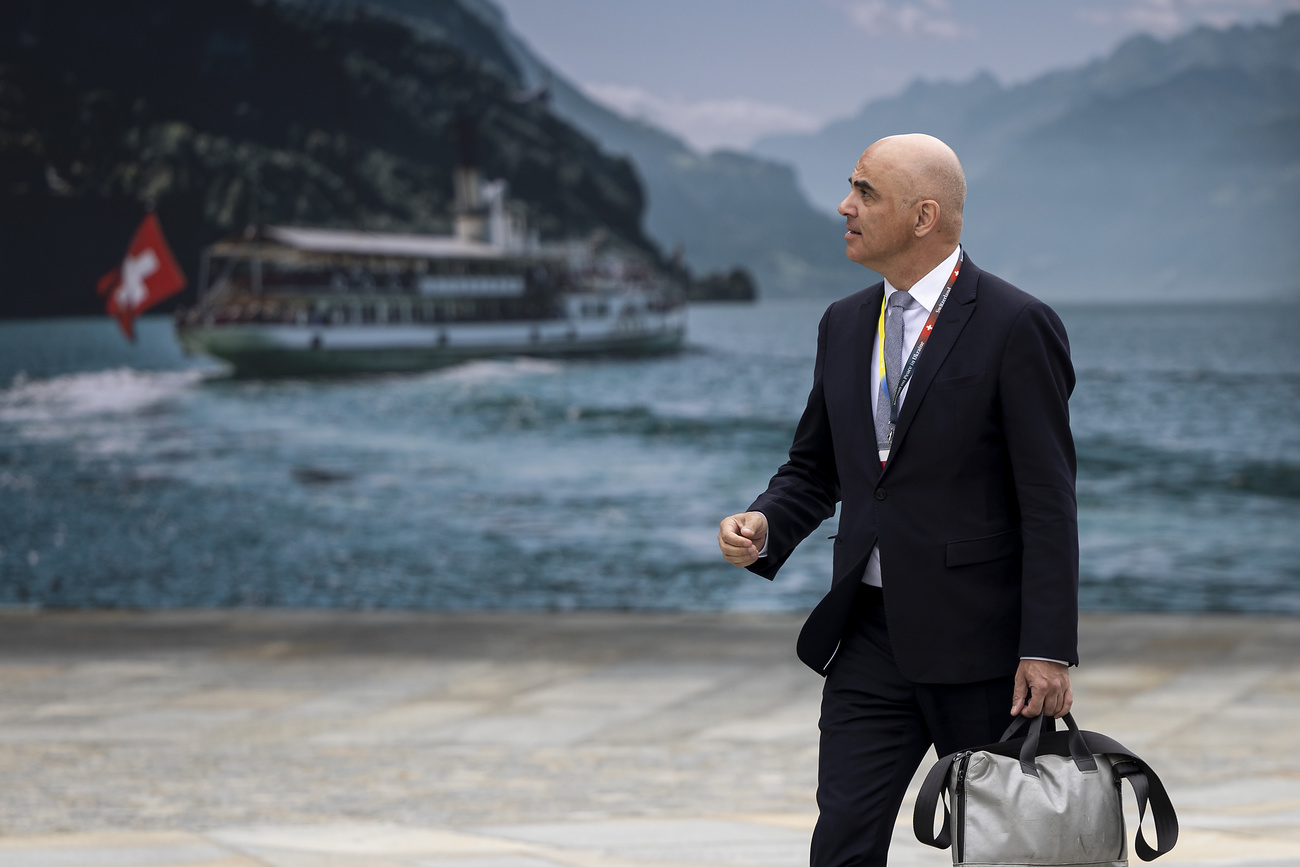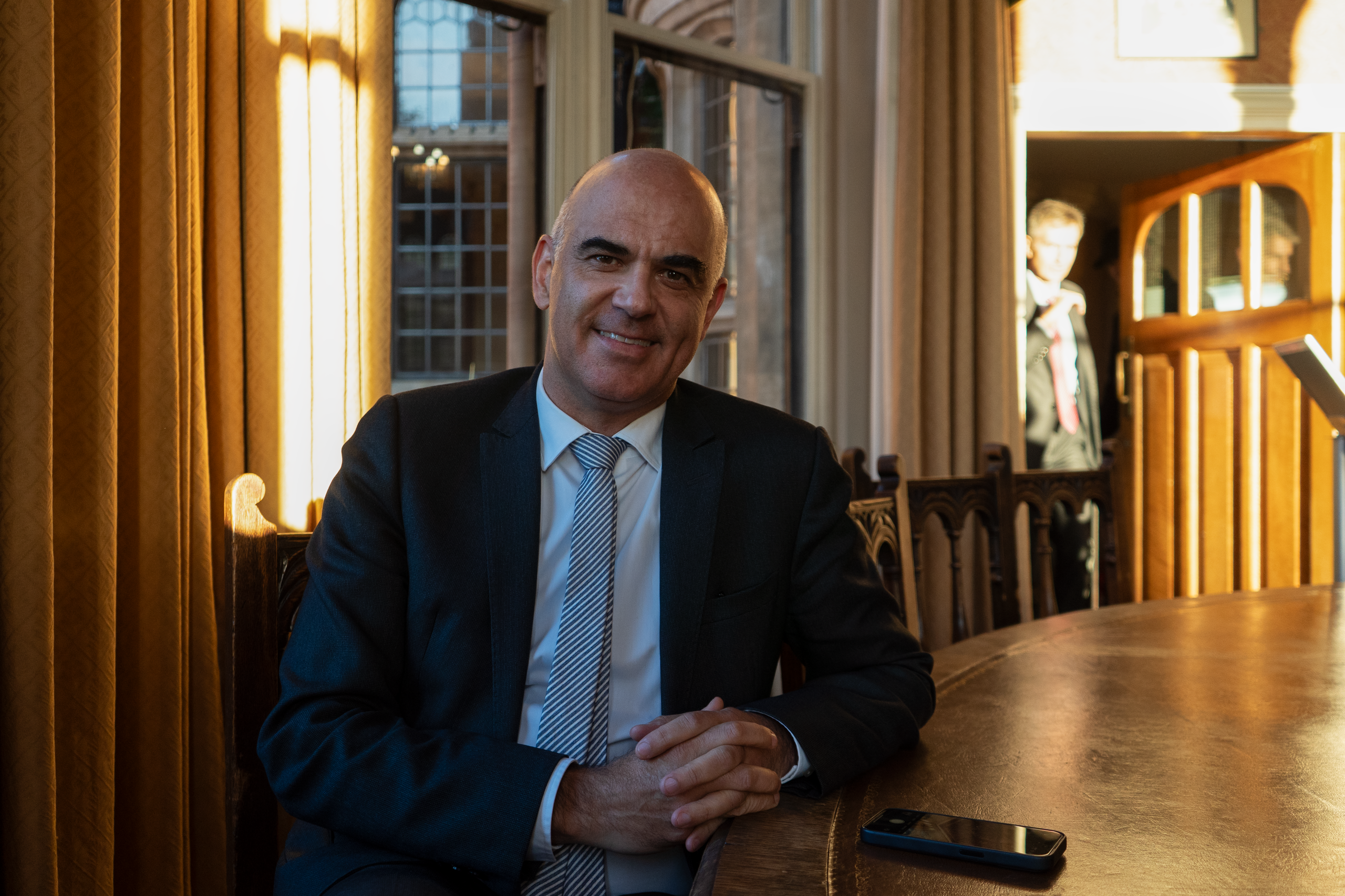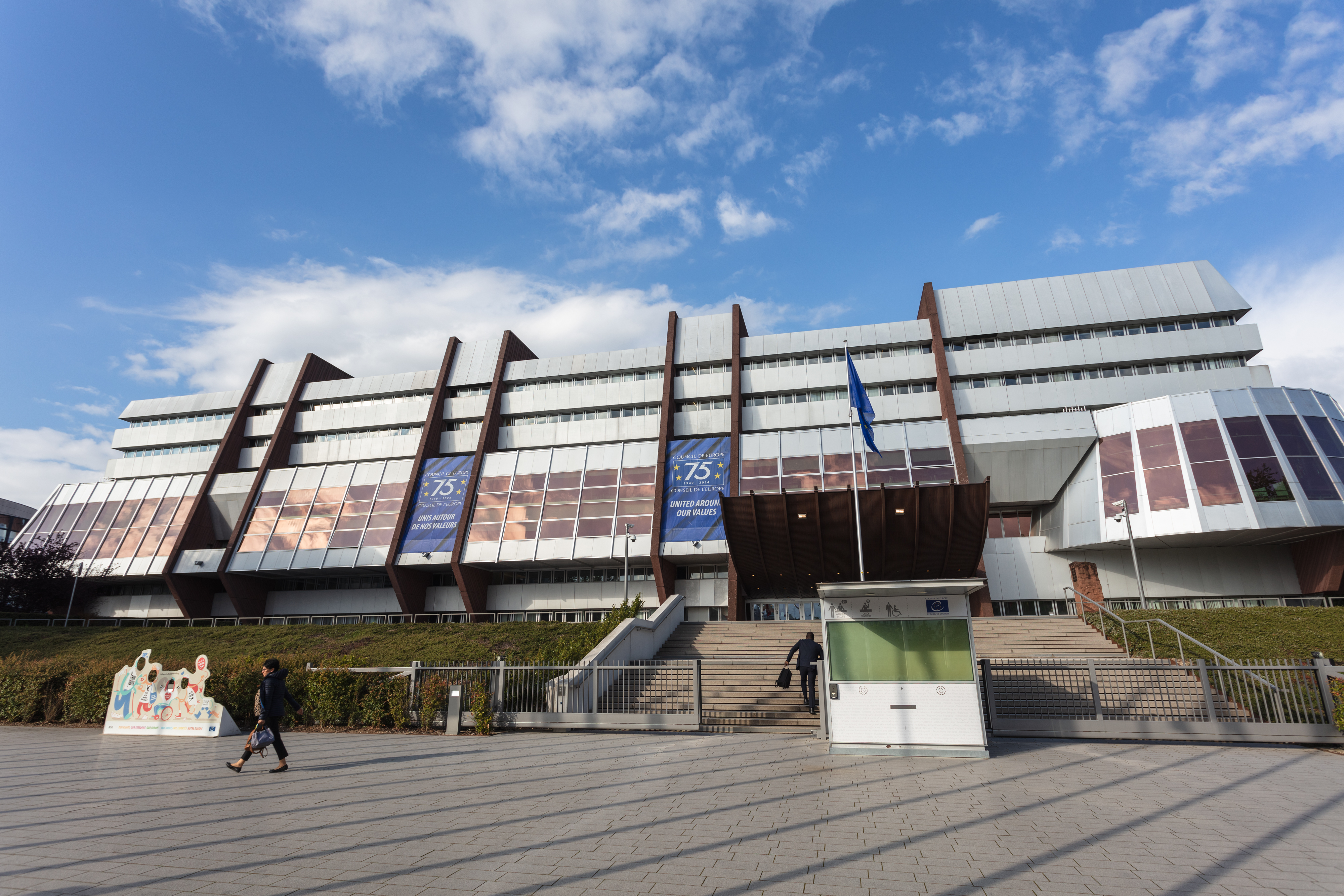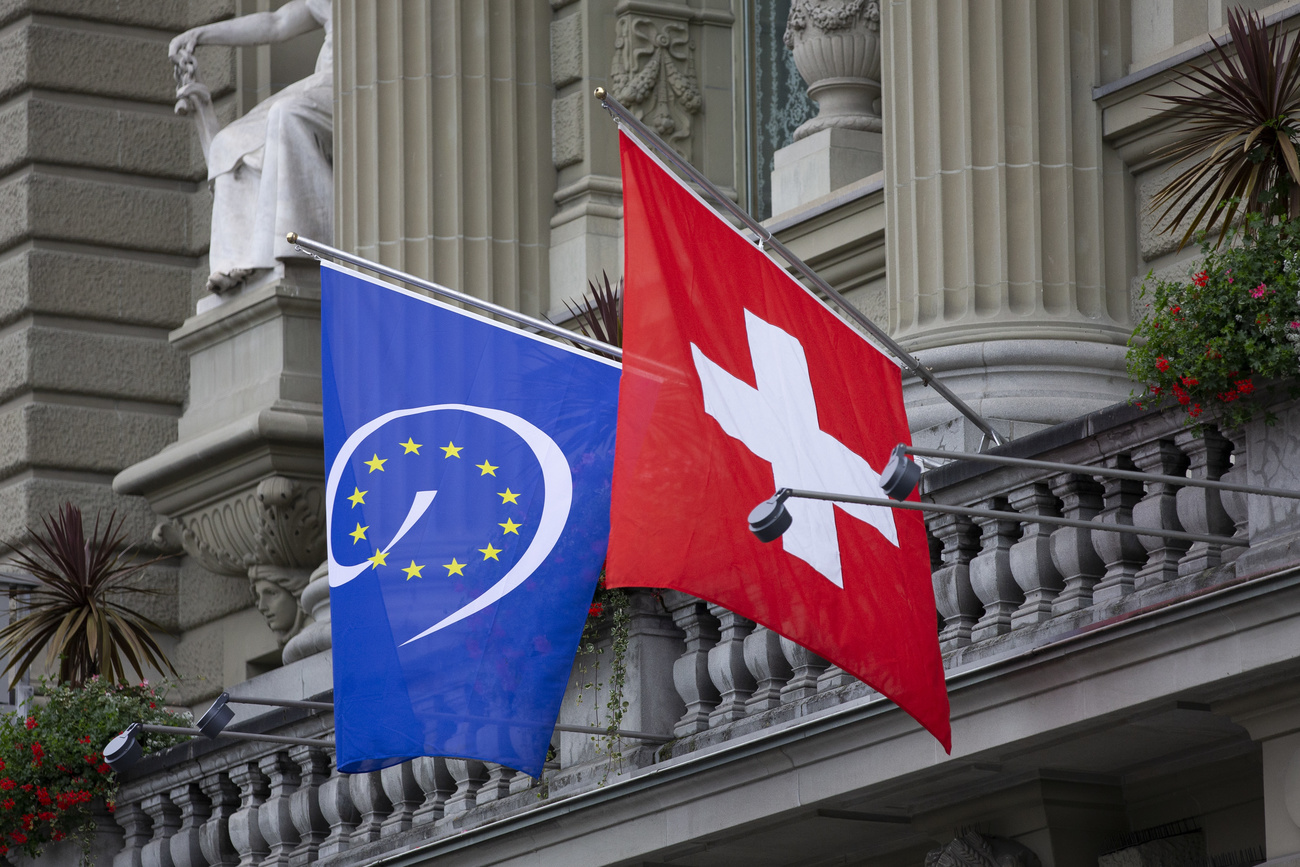A Swiss at the top of the Council of Europe

The organisation dubbed “Europe’s conscience” chose a new Secretary General on June 25. Former Interior Minister Alain Berset is the first Swiss to nab the post – who is he, and what’s in store for his five-year term?
Berset: a dynamic politician no stranger to the limelight
Towards the end of his 12-year cabinet career, Alain Berset was one of the best-known faces in Switzerland. As minister in charge of health policy during the coronavirus pandemic, the 52-year-old Social Democrat from the French-speaking part of the country was omnipresent. Charismatic in crisis, he became a star – a sense for soundbites propelled him onto T-shirtsExternal link and into songsExternal link; it also made him a favourite target of Covid protestors.
Whether his legacy will centre on this Covid role remains to be seen. Berset’s overall record as interior minister is more mixed – particularly when it comes to efforts to reform the health and pension systems. His last years in office were also marked by scandals: while a blackmail affair and a penchant for amateur aviation pleased the media, recurring leaks during the pandemic sparked a parliamentary inquiry – it had no concrete implications for Berset, but did leave him with a “black eye”, according to Swiss public radio, SRF.

More
Swiss president: ‘Switzerland is a land without a hidden agenda’
Secretary General: a job with room for manoeuvre
After leaving government at the end of 2023, the fast-moving Fribourg man waited a total of ten days before announcing his next goal: to become Secretary General of the Council of Europe. The Strasbourg-based body – not to be confused with the European Union (EU), of which Switzerland is not a member – is a 46-state international organisation, founded in 1949 to promote and safeguard democracy, the rule of law and human rights. “Europe’s conscience”, former German Chancellor Konrad Adenauer once called it.
As for the role of Secretary General, the Council of Europe is vague: he or she “has overall responsibility for the strategic management of the organisation,” it writesExternal link. At a minimum, this means the daily running of the secretariat and liaising between the Committee of MinistersExternal link and the Parliamentary AssemblyExternal link. Yet the role can become more political, says Anca Ailincai, a public law professor at the University of Grenoble-Alpes and a member of the Institut Universitaire de France. “Depending on personality – i.e. more or less forceful – the Secretary General can drive the agenda,” she says. The role comes without decision-making power, but it does have a “power to propose” initiatives.
More
Ailincai says outgoing Secretary General, Marija Pejcinovic Buric from Croatia, tended towards the proactive end of the scale – one example was her responseExternal link to a Polish court ruling undermining the European Convention on Human Rights. However, Buric’s time in office was also hampered by Covid-19 and the war in Ukraine. Of other former office-holders, Ailincai picks out Catherine Lalumière (1989-1994): not only was she the first woman in the job, she also served at a “watershed” moment when the Council began to integrate Eastern European countries after the Cold War.
Overall, of the 14 Secretary Generals since 1949, France and Austria have provided the most (three each). Switzerland, a member state since 1963, had never had anyone in the role until now.

More
A day at the Council of Europe with Swiss delegates
Council of Europe: tough times ahead
When his five-year term begins on September 18, Berset will however have his work cut out. The Council of Europe is at a difficult moment. The Russian attack on Ukraine involved one member state invading the territory of another – a tricky situation for a rights-based organisation. Meanwhile the European Court of Human Rights (ECHR), created by the Council in 1959, sometimes struggles to enforce verdicts – even in countries like Switzerland, where a recent ruling on Bern’s climate policy was rebuffed by the Swiss parliament.
Want to read our weekly top stories? Subscribe here.
Ailincai sees the outlook as nuanced. As for the ECHR – which she reckons gets too much attention compared to the rest of the Council – most rulings are applied, she says, despite resistance to certain judgements in recent years. And on the geopolitical front, the Council’s reaction to the war in Ukraine was “fast and decisive”: Russia was excluded as a member, and at a rare summit in Reykjavik last year, members decided on an equally rare budget boost, as well as on a new register of war damages in Ukraine.
However, Ailincai says, the summit ended without the type of “momentous decisions” seen after some previous gatherings. Ultimately, faced with an erosion of democratic values, the Council of Europe is at a “pivotal moment” in its history, she says.

Three-horse race – with Berset as frontrunner
Swiss media were confident about Berset’s chances of becoming Secretary General, a role elected by the Council’s Parliamentary Assembly, a diverse group of 306 national deputies from the 46 member states. Le Temps referred to Berset as the “favourite”, while the Neue Zürcher Zeitung (NZZ) talked up his “good chances” and “vast network” – which he reportedly used enthusiastically in the months before the vote, criss-crossing the continent to drum up support.
The Swiss also had some advantages over his rivals. He had an arguably higher profile than Estonian ex-Culture Minister Indrek Saar, and was younger than 65-year-old Didier Reynders (who also ran for the job in 2019, before becoming Belgium’s EU Justice Commissioner). Berset also served twice as rotating president in Bern; under Switzerland’s federal system, this is not exactly the sameExternal link as “head of state”, but it does imply executive experience at the highest level – no surprise that his stints as “President of the Swiss Confederation” were at the top of his Strasbourg CVExternal link.
Yet even if he headed into the vote at the top of the three-name shortlist, Berset’s election was not a shoo-in. One prospect was that centrist or left-leaning deputies in Strasbourg could have been split between the Social Democrats Berset and Saar, leaving the door open for liberal Reynders. A second issue raised by the NZZ am Sonntag involved elections in France and the UK: if distracted deputies from those countries neglected to travel to Strasbourg for the vote (attendance is not compulsory), it could have cost Berset valuable votes.
In the end, the fears had little impact: in the second round of voting in Strasbourg, Berset received a total of 114 from 245 valid ballots cast. Saar and Reynders got 85 and 46 respectively.
Edited by Mark Livingston/sb
This article was originally published on June 24, and updated on June 26 following the results of the Council of Europe vote.

In compliance with the JTI standards
More: SWI swissinfo.ch certified by the Journalism Trust Initiative







You can find an overview of ongoing debates with our journalists here . Please join us!
If you want to start a conversation about a topic raised in this article or want to report factual errors, email us at english@swissinfo.ch.